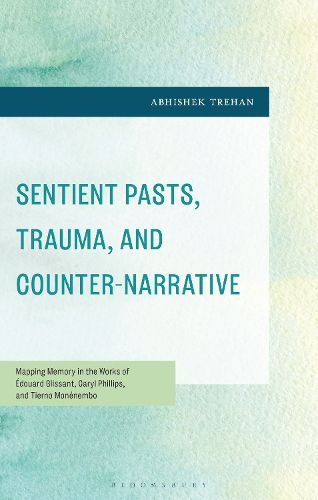Readings Newsletter
Become a Readings Member to make your shopping experience even easier.
Sign in or sign up for free!
You’re not far away from qualifying for FREE standard shipping within Australia
You’ve qualified for FREE standard shipping within Australia
The cart is loading…






Drawing upon the theories of memory studies, this book challenges the historical authenticity of colonialism in the works of Edouard Glissant, Caryl Phillips, and Tierno Monenembo as they seek to place their fiction in the aftermath of reparative histories.
Trehan examines not only the histories of displacement, diasporic traditions, genocidal trauma or continuation of colonialist affiliations in postcolonial societies, but the creative resistance to hegemony. Focusing on the embedded historical memory, the author examines the implications of remembrance (including selective remembering and forgetting) in the process of decolonization-bringing forth the struggle of representation and recognition. This book probes the transmission of traumatic memory across generations by amplifying the nexus between history and memory, reading beyond nation-based interpretations. By comparing the continuity of colonial legacy in the works of Glissant, Phillips, and Monenembo, Trehan examines a model of postcolonial inheritance to understand how ordinary people relate to the question of political expression by focusing on the colonial history, memory, and trauma.
$9.00 standard shipping within Australia
FREE standard shipping within Australia for orders over $100.00
Express & International shipping calculated at checkout
Drawing upon the theories of memory studies, this book challenges the historical authenticity of colonialism in the works of Edouard Glissant, Caryl Phillips, and Tierno Monenembo as they seek to place their fiction in the aftermath of reparative histories.
Trehan examines not only the histories of displacement, diasporic traditions, genocidal trauma or continuation of colonialist affiliations in postcolonial societies, but the creative resistance to hegemony. Focusing on the embedded historical memory, the author examines the implications of remembrance (including selective remembering and forgetting) in the process of decolonization-bringing forth the struggle of representation and recognition. This book probes the transmission of traumatic memory across generations by amplifying the nexus between history and memory, reading beyond nation-based interpretations. By comparing the continuity of colonial legacy in the works of Glissant, Phillips, and Monenembo, Trehan examines a model of postcolonial inheritance to understand how ordinary people relate to the question of political expression by focusing on the colonial history, memory, and trauma.